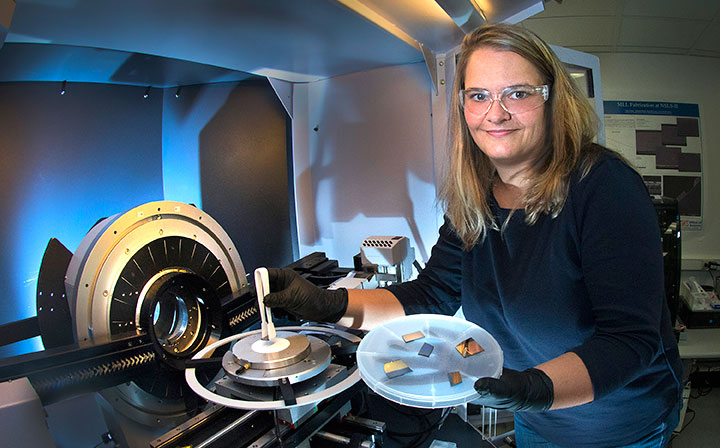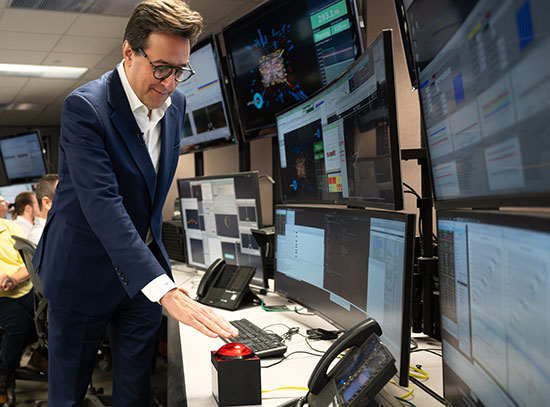Women @ Energy: Nathalie Bouet
October 24, 2014
 enlarge
enlarge
Nathalie Bouet is an associate scientist at the U.S. Department of Energy's Brookhaven National Laboratory.
The following profile was published by the Department of Energy's Office of Economic Impact and Diversity for the Women @ Energy series, which showcases women who are helping change the world, ensuring America’s security and prosperity through transformative science and technology solutions. Meet the other scientists profiled in the Women @ Energy series.
Nathalie Bouet is an associate scientist at the U.S. Department of Energy's Brookhaven National Laboratory. She obtained her degree in material science at the Universite d’Orleans in France and came to Brookhaven Lab's Photon Sciences Directorate (PS) as a post-doctoral fellow. Today, Nathalie's research is focused on developing thin-film samples for new x-ray optics—in particular, multilayer Laue lenses for x-rays nanofocusing. Although she is interested primarily in developing instrumentation, Nathalie is also involved in real-time studies of thin films growth and a technique called x-ray microscopy. At this crucial time of transition from the existing National Synchrotron Light Source (NSLS) facility at Brookhaven Lab to NSLS-II, where operations are scheduled to begin in 2015, Nathalie is working to support beamline optics development needs. She currently operates the X22A beamline at NSLS and is part of the Center for Functional Nanomaterials (CFN) user executive committee.
1) What inspired you to work in STEM?
As a kid, I experimented with everything: I grew plants in different environments, from the fridge to a cave, a garden, and my bedroom; I had pet snails, ants, turtles, and fish; I played "little chemist" with household products; and I played with solder and was amazed with how I could melt it and make perfect little beads by dropping it in water.
My parents have always encouraged me to conduct experiments and they were happily my collaborators—we've had lots of fun times doing experiments together. Later on at school, I really enjoyed being able to understand what was actually happening in my little experiments, which gave me ideas for more. My interest kept growing over the years and, because I’ve always been told that adult life is easier when you love and have fun doing what you do for a living, science was the obvious choice when I headed to university.
2) What excites you about your work at the Energy Department?
I’m really excited by the range of research going on across the Department of Energy (DOE). DOE includes so many researchers in different fields that are all part of one entity, which gives us the opportunity to collaborate across scientific areas and laboratories. That fosters creativity for our own research. Having an institution like DOE that values and funds basic research is fantastic. Basic research isn't basic—it’s the required essential foundation for applied research and technological developments the general public doesn't often witness.
3) How can our country engage more women, girls, and other underrepresented groups in STEM?
Women and other minorities should not be shy or think of STEM as being hard. Academically, women did very well in these disciplines when I look back at my time in school. Minorities are not always aware of the extent of the possible careers in STEM, so they may get the impression that they will have a hard time finding one that correspond to any level of education or area of interest. The truth is that you cannot imagine all the many different careers possible in STEM. This is one of the most collaborative work fields, so lots of people have chances to find jobs, make contributions, and succeed.
4) Do you have tips you'd recommend for someone looking to enter your field of work?
Explore and find what excites you! Science is vast and there are many branches. You should not be shy or afraid to push yourself into fields that are a bit off the expected path, you might find your dream job there!
5) When you have free time, what are your hobbies?
I love to travel and learn about different cultures and places. I also love to cook, another way of experimenting.
2014-5268 | INT/EXT | Newsroom









